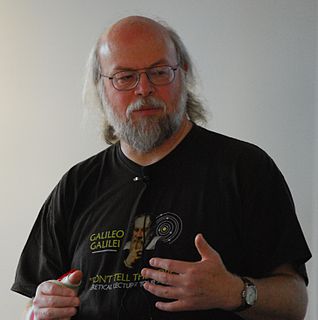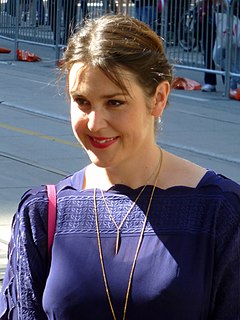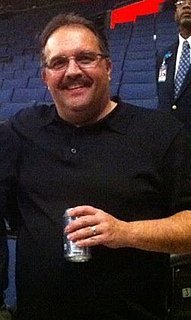A Quote by James Gosling
I've always felt that sort of in the abstract, open-source is the right thing to do for a lot of the kinds of things that we do. There are a variety of issues that make it a very complex discussion as to whether it actually works as a business.
Related Quotes
My parents were pretty open about a lot of things, especially my mom. And any kind of little crazy thing I was into, she was very supportive of. You know, whether it was BMX bike racing or being in the Boy Scouts or surfing or anything else, she always seemed to sort of support it. And I think it's because she was an immigrant and that idea of sort of having her kids be able to have access to their dreams and whatever they wanted to follow was very important to her.
I'm very, very serious about what I do. I think there are a lot of people out there sort of thinking it's anybody's game. You know, "You pick up a camera and you make a movie." My experiences over the years have taught me there's a lot more than that to making a film - there's also getting the film seen, and all kinds of complex realities.
If an open source product gets good enough, we'll simply take it. So the great thing about open source is nobody owns it - a company like Oracle is free to take it for nothing, include it in our products and charge for support, and that's what we'll do. So it is not disruptive at all - you have to find places to add value. Once open source gets good enough, competing with it would be insane. We don't have to fight open source, we have to exploit open source.
I have always had a tendency to keep enlarging problems which I personally think is the way the world works... that seeing anything one dimensionally on the kinds of political, sort of big issues of human progress is going to be a distorted view of things, which is why over my career I have gone seemingly from subject to subject to subject.
I mean, in many ways, you know, I felt very connected to Ian (Dury) on, on a lot of levels. I mean, politically, & sort of, socially, our, kind of, social backgrounds are quite similar in many ways, as well as our kind of artistic endeavors. So there were many, many things that sort of chimed in for me, and kind of made me feel very instinctive about playing him, and, and although, there was sort of a certain amount of impression involved, actually, there's a lot of myself in the role.
I felt like the script [of "I Don't Feel at Home in This World Anymore"] was so clear. It was sort of packed full of information. [Macon Blair] puts in a lot of discussion in the script. Characters are introduced very thoughtfully. The way he described walking into particular environments was very specific.
Coming from a sort of very rigid European type of training to this culture which is just a little more open - a lot more open, and kind of curious, and asking different sorts of questions.Because the problem for me was that the European modernist movement in the '70s was all about right or wrong. Some things were right and you were dealing with the truth, as it were, and then some things were wrong and therefore not allowed.
Our experience of love is more of a measure of whether we're connected with the universal source of this energy. In other words, there's some life energy that we have and sort of share with people we might be relating to that takes place, that operates whether we're sort of feeling in a state of love or not. But love is the measure of whether we're really connected with the internal source of this energy where we can consciously sort of fill up and amplify the amount of energy that we're able to take in from the inside.





































